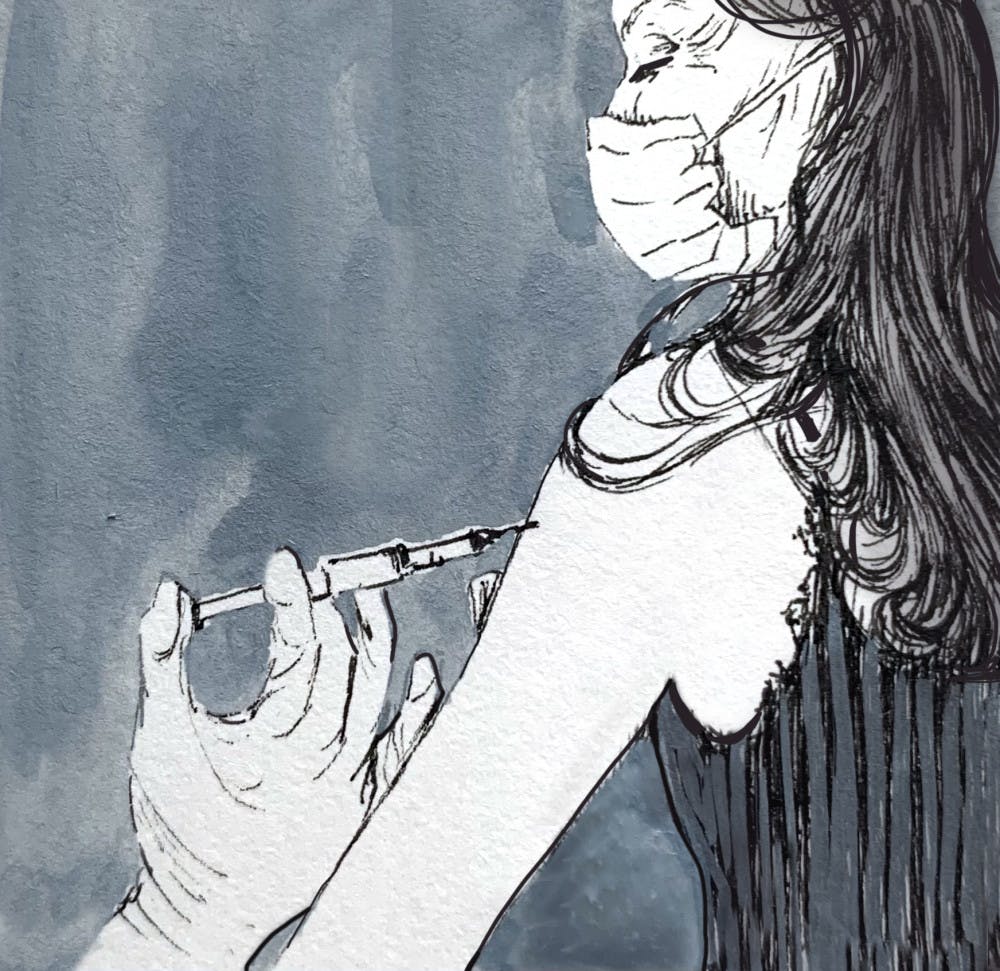The RI Gives Vax Challenge met its goal of inoculating 25,000 Rhode Islanders this summer while giving $750,000 to local nonprofits on the frontlines of COVID-19 pandemic response.
Governor Dan McKee introduced the statewide vaccination incentive challenge July 6, promising to give a round of $10,000 grants to a variety of nonprofits each time another 5,000 citizens received a first dose of the COVID-19 vaccine, Lexi Kriss, the governor’s deputy director of communications, wrote in an email to The Herald. The program was conducted in association with the Rhode Island Foundation, the Rhode Island Department of Health and the Rhode Island Commerce Department.
Neil D. Steinberg ’75, president and CEO of the Rhode Island Foundation, wrote in an email to The Herald that the program was prompted by declining vaccination rates in June. The attention garnered by the program’s launch, he added, was effective at reversing this trend.
“Getting vaccinated was an easy way for (people) to give back to the nonprofits that have provided food, housing, health care and so much more throughout the pandemic,” he wrote.
Although the Rhode Island Department of Health projected that the five-round goal of 25,000 vaccinations would not be met until the fall, they reached their goal Aug. 6, just four weeks after the program’s initial launch, according to Kriss.
Steinberg wrote that the organizations who were awarded grants through the challenge were selected from an applicant pool of nonprofits with “annual operating budgets of less than $3,000,000” relevant to issues relating to and resulting from the pandemic. Eligibility rested on whether a nonprofit was “on the frontlines of helping RI’ers most in need get through the crisis,” he added.
Among the first to receive a grant was the Rhode Island Free Clinic, which provided free healthcare — including vaccinations, testing and follow-up care — to uninsured, low-income adults, among whom were “the hardest hit and most at risk for COVID-19,” said RIFC Senior Staff member Marvin Ronning.
Ronning referred to the pandemic as “the clinic’s biggest challenge” in its 22 years of existence, due to the two-fold increase in the clinic’s patient base. Considering the effects of the pandemic and the fact that RIFC is funded entirely through donations, the clinic is “particularly grateful” for the grant they received to support their increased post-pandemic coverage.
The Refugee Dream Center, an organization dedicated to supporting refugees through various resettlement challenges, also received a grant for providing financial assistance, food, housing, health information and other services to a network of over 1,500 refugees and immigrants during the pandemic. This network is four times the population served by the organization prior to the pandemic, RDC Executive Director Dr. Omar Bah wrote in an email to The Herald.
As refugees in Rhode Island reel from job loss due to the pandemic and related mental health issues, Bah wrote that the RDC plans to use the grant money to continue providing food and housing security, education programs and COVID-19 information to the community in order to promote self-sufficiency and public health in the long-term.
Another grant recipient was Adoption Rhode Island, a nonprofit that supports foster and adopted children and adolescents. Jennifer Foster, ARI’s Director of Development and Community Relations, said that the organization’s mental health and family support services were “really critical” during the pandemic to ensure that kids with a history of trauma didn’t feel “alone and disconnected” on the path to adoption or independent living.
Given that approximately 40 to 45 percent of the organization is funded by private donations, Foster said that ARI was “very, very happy to have received the grant,” adding that much of the new money will likely go to emergency assistance and providing supplies to students, which might include new materials like technology or PPE.
Ultimately, Foster said the money will go to “helping families cope and be able to manage going forward, whether that’s a basic or emergency need or to help kids succeed.”
As of now, Rhode Island houses the fifth highest percentage of fully vaccinated citizens in the country. But while incentives such as the RI Gives Vax Challenge have contributed to this high vaccination rate, according to Kriss, around 160,000 people in the state remain unvaccinated.
Ronning also said that the pandemic’s lasting impact — whether it be through new variants, vaccine hesitancy or the related economic and social turmoil — continues to affect vulnerable populations including the uninsured and people of color.
“We’re going to be serving folks for pandemic-related issues for a long time,” he said.





